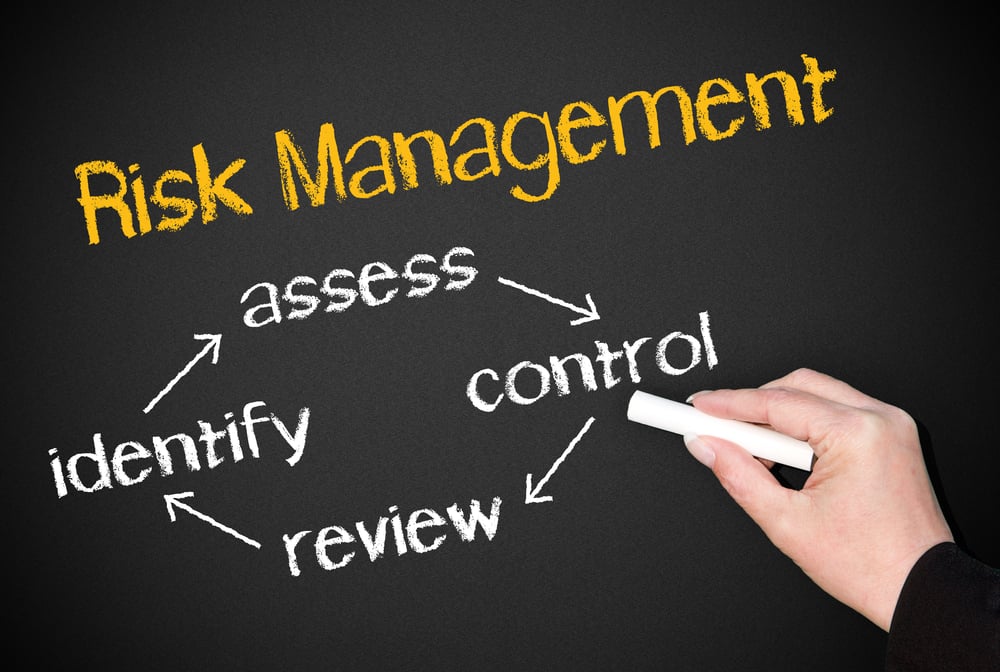At the Florida Workers' Compensation Forum (WCCP) in April, several speakers addressed the unique challenges emerging from the processing and defense of claims on behalf of some of Florida's largest employers and workers' compensation service providers.
Almost immediately following the conference came the Florida Supreme Court's reversal of Castellanos v. Next Door (2009). Then two months later, the court ruled another critical decision unconstitutional in Westphal v. City of St. Petersburg (2013). Clearly, the ramifications of these decisions represent the most significant challenges faced by the Florida workers' compensation industry since Aguilera v. Inservices, Inc. (1999), which led to the sweeping reforms of 2003. All indications from the legislature suggest that the industry at large is on the cusp of a similar seismic shift in 2017.
The Castellanos decision effectively removes the cap that has been in place since 2009 for applicant attorneys' fees in all Florida workers' compensation cases. Not surprisingly, following this development, actuaries and auditors alike universally concur in reporting that their internal metrics reflect an alarming rise in petitions for benefits across the board, now a year removed from Castellanos.
Meanwhile, the Westphal ruling will undoubtedly result in the broadening and expansion of an injured worker's access to and duration of benefits, as well as alternative legal remedies in matters involving allegations of permanent vs. temporary total disability.
It appears imperative that the industry adopts new innovative strategies, specifically in the preliminary triage and investigative stages, to support claims associates as they embark on the new challenges the inevitable fallout from these decisions represent in Florida.
One such strategy, specifically the “arising out of employment” or “course of employment” (AOE/COE) approach in the field, could be a solution. The AOE/COE investigation is the most effective way to empower claims associates to answer the fundamental question of compensability accurately and promptly. In medical terms, the process is comparable to a differential diagnosis.
The timing appears perfect to introduce Florida associates to the countless benefits and profound impact that would result from the application of AOE/COE coverage-specific non-surveillance investigations in the field.
The AOE/COE approach originated in California in the early 1980s, following a particularly grievous case and judgment finding quite similar in nature and scope to Aguilera, which was entered against the State Compensation Insurance Fund.
To ensure this scenario was not repeated, the Workers' Compensation Appeals Board (WCAB) of California mandated a specific set of investigative steps be taken in each matter involving an application for benefits, to better address the fundamental industrial/non-industrial or AOE/COE coverage question during the first 30 days following receipt of the initial notice of injury report.
Virtually all corollary elements associated with workers' compensation cases, such as subrogation, apportionment and pre-litigation discovery, flow from a well-executed AOE/COE investigation. Ultimately, our findings in this initial and most critical process also come into play in the development of special investigative unit (SIU) files, where appropriate, as well as being instrumental in the coordination of surveillance activities, which ultimately impact the ability to defend questionable claims.
Equally important is the pivotal role these preliminary investigations play in routine claims involving serious injuries. This service-oriented aspect enhances relationship building through the face-to-face communication process, which results from consistently applying this model between the injured worker, employer and insurer.
This bridge-building between field and claims associates represents the definition of outstanding customer service in the claims industry. An empathetic approach not only reflects emotional intelligence, but also lends invaluable hands-on guidance in the field to both injured worker and employer alike. This level of empathetic, hands-on service in the field often serves as the critical deterrent against claimants immediately opting to pursue their claims through litigation.
|The potential of the AOE/COE approach
There is little doubt that a multitude of carriers, third-party administrators and self-insured/self-administered entities would benefit from the potential the implementation of the AOE/COE approach yields. In addition to refining overall investigative processes in the field, this approach also serves as a classic tool for proactive planning.
This approach could begin as an introductory service, offered to dedicated units in states outside of California that haven't experienced its benefits first-hand. Following the initial launch as a pilot program, as demand for these services rises, the pieces would already be in place to respond by gradually expanding the service in markets through a hands-on training program, both internally and in the field.
This demand would necessitate the development of a highly trained specialty unit, which would serve as an example of superior claims-specific customer service to clients at contract renewal time.

Triaging a loss enhances the ability to identify anomalies and gives adjusters access to witness information earlier in the process. (Photo: Shutterstock)
|How the process works
Ideally, the initial rollout of the AOE/COE approach would specifically target dedicated units charged with the handling of Florida-specific retail, hospitality and manufacturing accounts for such entities, keeping in mind the impact of the Castellanos ruling and all existing procedures currently in place for triage and investigative services in the field.
A cost benefit analysis reveals that it would yield tangible and profound client savings, specifically with respect to allocated legal expenses. This targeted approach to identifying and obtaining recorded statements from witnesses in the field during the early stages translates directly into savings on the litigation front.
Consistent engagement in this method of informal discovery during this initial triage process enhances the ability to identify and interview all witnesses in the early stages, accurately gauging their relative knowledge levels. Once the case is referred to defense counsel, the handling attorney would be placed in a prime position to only notice those depositions certain to yield quantifiable information with respect to their overall defense strategies.
Further, the implementation of this approach frees up senior associates carrying significantly higher than average quantities of pending files for potential training of less experienced associates, increasing the overall population of senior staffing.
Another prime advantage in AOE/COE field investigations is the rapid turnaround of the communication and documentation they provide, relative to identifying the manner of injury, specific date or repetitive use, as well as the nature and extent in the first 30 days.
Conversely, red flags in claims would become more readily identifiable during the initial course and scope investigation. This would dramatically enhance the ability to notify the SIU immediately by providing the initial reports along with defense counsel when litigation is anticipated.
Chief issues would include but not be limited to evidence pointing to suspected non-industrial causation; pre-existing medical conditions; performance or attitudinal issues; and the verification of post-termination reporting of claims.
The reason for using Florida as a test case lies in the timing to introduce this platform based on data provided by local auditors confirming that the ripple effect of Castellanos and Westphal is already taking hold there, and new petitions for benefits filings are dramatically on the rise.
The industry's response in dealing with this new reality in Florida will necessitate a renewed emphasis on swift yet comprehensive preliminary investigations, coupled with an emphasis on compassionate guidance in the field.
It is clear that the reversal of Castellanos and Westphal will result in an inevitable and significant uptick in the frequency of petitions for benefits in Florida, and one way to get ahead of this development is through the implementation of the AOE/COE approach in the field.
This approach will not only aid in identifying the nature, extent and compensability of any given claim in the early stages but will also serve as an informal training mechanism for field staff.
Related: Top Florida court strikes down attorney fee schedule for Workers' Comp cases
|Implementing the AOE/COE process
Because these investigations are preliminary and clearly independent of the SIU, it makes sense to develop this unit as a way to cross-train licensed adjusters, such as looking for candidates who have received their board certifications in Florida Workers' Compensation (CWC) or are credentialed in Workers' Compensation Litigation (CWCL) through the Florida WCCP.
Identified as “field representatives” rather than “investigators,” they would serve in a hybrid role as both field investigators and field adjusters, acting as conduits of enhanced communication within large corporations.
Each case would provide an opportunity to share with employers and injured workers alike the many tools available that will ultimately prove invaluable in their efforts to navigate the current Florida workers' compensation system. This level of dedication in the field will not only yield prompt investigations but will also lead to organic training through consistent repetition.
The ability to respond in times of crisis defines the leading edge of an industry. This approach serves as an example of a preeminent asset lacking in the current environment.
Aaron Bergman, CWC, CWCL ([email protected]) is the owner-operator of Everglades Claims Investigations.
Want to continue reading?
Become a Free PropertyCasualty360 Digital Reader
Your access to unlimited PropertyCasualty360 content isn’t changing.
Once you are an ALM digital member, you’ll receive:
- Breaking insurance news and analysis, on-site and via our newsletters and custom alerts
- Weekly Insurance Speak podcast featuring exclusive interviews with industry leaders
- Educational webcasts, white papers, and ebooks from industry thought leaders
- Critical converage of the employee benefits and financial advisory markets on our other ALM sites, BenefitsPRO and ThinkAdvisor
Already have an account? Sign In Now
© 2024 ALM Global, LLC, All Rights Reserved. Request academic re-use from www.copyright.com. All other uses, submit a request to [email protected]. For more information visit Asset & Logo Licensing.








